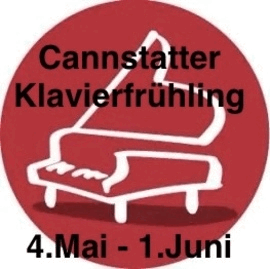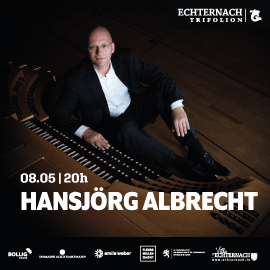Von den vier eingespielten Werken stammen drei von ungarischen Komponisten, eines von Maurice Ravel. Mit der Sonate für Cello solo von Ligeti stellt sich der Sohn Maxime Ganz vor, mit der Sonate für Violine solo der Vater Amiram Ganz. Umgeben sind diese beiden Stücke von zwei Duos für Violine und Cello, dem von Kodaly und dem von Ravel. Nach längerer Duogeschichte im Konzertsaal bieten Vater und Sohn hier erstmals eine gemeinsame Aufnahme an.
Vater Amiram Ganz beweist in der Sonate von Bartok mit ebenso edlem Ton wie griffigem Spiel, dass er aus seiner Zeit als Konzertmeister in Straßburg die klar formulierte Geste zu einer ausdrucksvollem Aussage formen und diese in ein Gesamtkonzept einbetten kann. Die formidable Klangentfaltung ist sein Metier, nicht die Attacke.
Sohn Maxime Ganz zeigt bei der Sonate von Ligeti, aus welchem Hause er stammt, obwohl dieses Werk einen moderneren und spröderen Ansatz ermöglichen würde. Auch er entlockt den zwei kurzen Sätzen auf die klingende Qualität gerichtete Töne.
Im Zusammenspiel bei Kodaly und Ravel vereinen sie dann ihre spielerischen Qualitäten, lassen aber gerade bei Ravel durchaus auch aufgeraute Momente zu. An der familiär engen Bindung lässt das zutiefst harmonische Zusammenspiel keine Zweifel aufkommen. In ihrer Interpretation klingt der Ravel innerhalb dieser Zusammenstellung am modernsten, obwohl die beiden beinahe zeitgleich entstandenen Duos deutlich älter sind als die Solowerke.
Beide Interpreten, einzeln oder zusammen, schaffen so durchdachte und ausgeglichene Interpretationen. Auch wenn sie Forcierungen meiden, so bleiben ihre Deutungen doch oder gerade deswegen spannend und energiereich.
Of the four works recorded, three are by Hungarian composers, one by Maurice Ravel. Ligeti’s son Maxime Ganz introduces himself with the Sonata for Solo Cello, and his father Amiram Ganz with the Sonata for Solo Violin. Surrounding these two pieces are two duos for violin and cello, the one by Kodaly and the one by Ravel. After a long history of duets in the concert hall, father and son offer here for the first time a joint recording.
Father Amiram Ganz proves in Bartok’s sonata, with a tone as noble as it is gripping, that from his time as concertmaster in Strasbourg he can shape the clearly formulated gesture into an expressive statement and embed it in an overall concept. The formidable unfolding of sound is his metier, not the attack.
Son Maxime Ganz shows in the Sonata by Ligeti from which house he comes, although this work would allow a more modern and brittle approach. He, too, elicits tones directed at sonorous quality from the two short movements.
In the interplay of Kodaly and Ravel, they then combine their playful qualities, but in Ravel’s case in particular they also allow for roughened moments. The deeply harmonious interplay leaves no doubt about the close family bond. In their interpretation, the Ravel sounds most modern within this compilation, although the two duos, written almost simultaneously, are clearly older than the solo works.
Both performers, individually or together, create such thoughtful and balanced interpretations. Even though they avoid forcing, their interpretations remain exciting and energetic, or perhaps because of it.






















